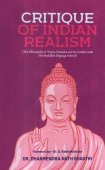Dharmi, Dharmī: 10 definitions
Introduction:
Dharmi means something in Hinduism, Sanskrit, Marathi, Hindi. If you want to know the exact meaning, history, etymology or English translation of this term then check out the descriptions on this page. Add your comment or reference to a book if you want to contribute to this summary article.
In Hinduism
Yoga (school of philosophy)
Source: Google Books: Yoga Sutras of Patanjalidharmī = property-holder, substratum, substance (“dharmī”).
Source: Google Books: The Science of Yogadharmī (धर्मी) = the substratum in which the properties inhere.

Yoga is originally considered a branch of Hindu philosophy (astika), but both ancient and modern Yoga combine the physical, mental and spiritual. Yoga teaches various physical techniques also known as āsanas (postures), used for various purposes (eg., meditation, contemplation, relaxation).
Natyashastra (theatrics and dramaturgy)
Source: Wisdom Library: Nāṭya-śāstraDharmī (धर्मी, “practices”) is a Sanskrit word referring to “mode of dramatic representation”, according to the Nāṭyaśāstra verse 6.10 and verse 14.61. It can also be spelled as Dharmin.
Dharmī is said to be of 2 kinds:
- Lokadharmī (realistic),
- Nāṭyadharmī (conventional).

Natyashastra (नाट्यशास्त्र, nāṭyaśāstra) refers to both the ancient Indian tradition (shastra) of performing arts, (natya—theatrics, drama, dance, music), as well as the name of a Sanskrit work dealing with these subjects. It also teaches the rules for composing Dramatic plays (nataka), construction and performance of Theater, and Poetic works (kavya).
Purana and Itihasa (epic history)
Source: Cologne Digital Sanskrit Dictionaries: The Purana Index1a) Dharmī (धर्मी).—A son of Bharadvāja.*
- * Vāyu-purāṇa 99. 286.
1b) A son of Bṛhadbhāja and father of Kṛtamjaya.*
- * Viṣṇu-purāṇa IV. 22. 6.

The Purana (पुराण, purāṇas) refers to Sanskrit literature preserving ancient India’s vast cultural history, including historical legends, religious ceremonies, various arts and sciences. The eighteen mahapuranas total over 400,000 shlokas (metrical couplets) and date to at least several centuries BCE.
General definition (in Hinduism)
Source: Ashtanga Yoga: Yoga Sutrani Patanjalidharmī = the object or person containing the characteristics. (Chapter 3.14)
Languages of India and abroad
Marathi-English dictionary
Source: DDSA: The Molesworth Marathi and English Dictionarydharmī (धर्मी).—a (S) Virtuous, pious, strict, just. 2 Having qualities or properties;--used of the subject in opposition to the accidents or affections of it. 3 also dharmīdātā (Esp. in use amongst religious mendicants.) Liberal in almsgiving, charitable.
Source: DDSA: The Aryabhusan school dictionary, Marathi-Englishdharmī (धर्मी).—a dharmīdātā a Virtuous, pious, cha- ritable.
Marathi is an Indo-European language having over 70 million native speakers people in (predominantly) Maharashtra India. Marathi, like many other Indo-Aryan languages, evolved from early forms of Prakrit, which itself is a subset of Sanskrit, one of the most ancient languages of the world.
Sanskrit dictionary
Source: Cologne Digital Sanskrit Dictionaries: Edgerton Buddhist Hybrid Sanskrit DictionaryDharmi (धर्मि).—(°-) (kathā; Pali dhammi-), see s.v. 3 dharma.
--- OR ---
Dharmī (धर्मी).—(°-) (kathā; Pali dhammī-), see s.v. 3 dharma.
--- OR ---
Dhārmi (धार्मि).—(-kathā) , see s.v. 3 dharma.
--- OR ---
Dhārmī (धार्मी).—(-kathā) , see s.v. 3 dharma.
Sanskrit, also spelled संस्कृतम् (saṃskṛtam), is an ancient language of India commonly seen as the grandmother of the Indo-European language family (even English!). Closely allied with Prakrit and Pali, Sanskrit is more exhaustive in both grammar and terms and has the most extensive collection of literature in the world, greatly surpassing its sister-languages Greek and Latin.
Hindi dictionary
Source: DDSA: A practical Hindi-English dictionaryDharmī (धर्मी):—(a) religious, virtuous, pious.
...
Kannada-English dictionary
Source: Alar: Kannada-English corpusDharmi (ಧರ್ಮಿ):—
1) [adjective] having or characterised by, moral virtue; righteous; virtuous.
2) [adjective] abiding by rules or codes; law-abiding.
--- OR ---
Dharmi (ಧರ್ಮಿ):—
1) [noun] that which is characterised by certain characters, (natural) properties, etc.
2) [noun] a virtuous, righteous person.
3) [noun] a kind-hearted, compassionate person.
4) [noun] (dance.) any customary practice that the dancers abide by on the stage, as, pretending not to have heard co-dancer’s soliloquy, using certain mannerisms, etc.
Kannada is a Dravidian language (as opposed to the Indo-European language family) mainly spoken in the southwestern region of India.
See also (Relevant definitions)
Starts with (+29): Dharmik, Dharmik-sahishnutaa, Dharmika, Dharmika-karya, Dharmika-kshetra, Dharmika-sahishnuta, Dharmikamatha, Dharmikashikshana, Dharmikasthana, Dharmikata, Dharmikatana, Dharmikate, Dharmikatva, Dharmikikshita, Dharmiksthaan, Dharmikya, Dharmil, Dharmila, Dharmin, Dharmina.
Ends with (+6): Adharmi, Aprasavadharmi, Atmadharmi, Budda dharmi, Buddadharmi, Devidharmi, Dharmadharmi, Ekadharmin, Hathadharmi, Lokadharmi, Natyadharmi, Nirdharmi, Paramadharmi, Pralayadharmi, Prasavadharmi, Sad-dharmi, Saddharmi, Sadharmi, Sahadharmi, Sanatanadharmi.
Full-text (+23): Natyadharmi, Dharmin, Dharmitavaccheda, Dharmitavacchedakatavadartha, Dharmitavacchedakapratyasatti, Dharmitavacchedakarahasya, Dharmitavacchedakavada, Dharmitavacchedakapratyasattinirupana, Budda dharmi, Apadharma, Apatanadharmitva, Natyadharmika, Patanadharmitva, Brihadbhaja, Dharmiputra, Vikramanadharmitva, Sudharmita, Dharmita, Hayaka, Varadharmikri.
Relevant text
Search found 32 books and stories containing Dharmi, Dharmī, Dhārmi, Dhārmī; (plurals include: Dharmis, Dharmīs, Dhārmis, Dhārmīs). You can also click to the full overview containing English textual excerpts. Below are direct links for the most relevant articles:
Sahitya-kaumudi by Baladeva Vidyabhushana (by Gaurapada Dāsa)
Text 10.33 < [Chapter 10 - Ornaments of Meaning]
Text 10.155 < [Chapter 10 - Ornaments of Meaning]
Vakyapadiya of Bhartrihari (by K. A. Subramania Iyer)
Verse 3.9.54 < [Book 3 - Pada-kāṇḍa (9): Kāla-samuddeśa (On Time)]
Verse 3.14.620-621 < [Book 3 - Pada-kāṇḍa (14): Vṛtti-samuddeśa (On Ccomplex Formation)]
Natyashastra (English) (by Bharata-muni)
Historical Elements in the Matsya Purana (by Chaitali Kadia)
Some King’s dynasty in Kaliyuga: Dynasty of Ikṣvāku < [Chapter 6 - Human history in the Matsya-Purāṇa]
Yoga-sutras (with Bhoja’s Rajamartanda) (by Rajendralala Mitra)
Sūtra 3.14 < [Third Chapter (Vibhuti Pada)]
The Tattvasangraha [with commentary] (by Ganganatha Jha)
Verse 1492 < [Chapter 19a - Other forms and means of Knowledge (A): Verbal cognition]
Verse 1489-1491 < [Chapter 19a - Other forms and means of Knowledge (A): Verbal cognition]
Related products
